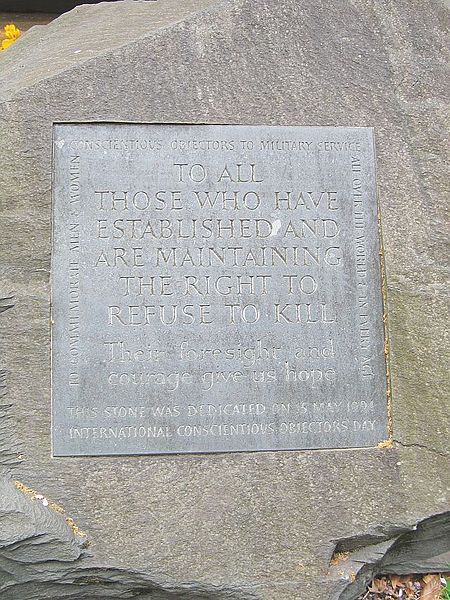
At the time, they were mocked, ridiculed and looked upon in disgust for their refusal to take part in any form of combat during the First World War. But today, a memorial ceremony was held in London for around 50 of those men who became known as conscientious objectors. It is estimated that between 16,000 and 20,000 British men refused to fight in the conflict.
However, this does not mean that they all refused to take part in the war altogether. Some men agreed to take non-combatant roles, such as driving ambulances or caring for the wounded. Any man who refused to take part in any form of assistance was known as an absolutist and consequently imprisoned – except for those who refused on religious grounds and could defend themselves against a tribunal in court. One such conscientious objector was Tom Atlee, the brother of Clement Atlee, who would go on to become Britain’s Prime Minister in the 1950s. He was imprisoned for much of the duration of the war.
Those who struggled to defend their views against a tribunal faced an agonising decision: did they wait for the call to fight in the war, or allow themselves to be arrested? Women at home who witnessed conscientious objectors – also known as Conchies – often presented them with a white feather, which was seen as an accusation of cowardice in an attempt to shame them into fighting.
Today, many people still take the view that refusing to fight in the war was seen as an act of feebleness and should not be celebrated, particularly not in a memorial ceremony. But for those whose relatives were conscientious objectors, their views could not be more different. Ernest Rodker claims he has nothing but admiration for the stand that his grandfather took. ‘It would have taken some courage to say, ‘Well, I’m not fighting for Britain or against the Germans.’
Visit our Youtube channel and watch a short video on what it meant to be a conscientious objector. What do you think? Should conscientious objectors be seen as heroes or cowards? Let us know via our Facebook or Twitter page.

